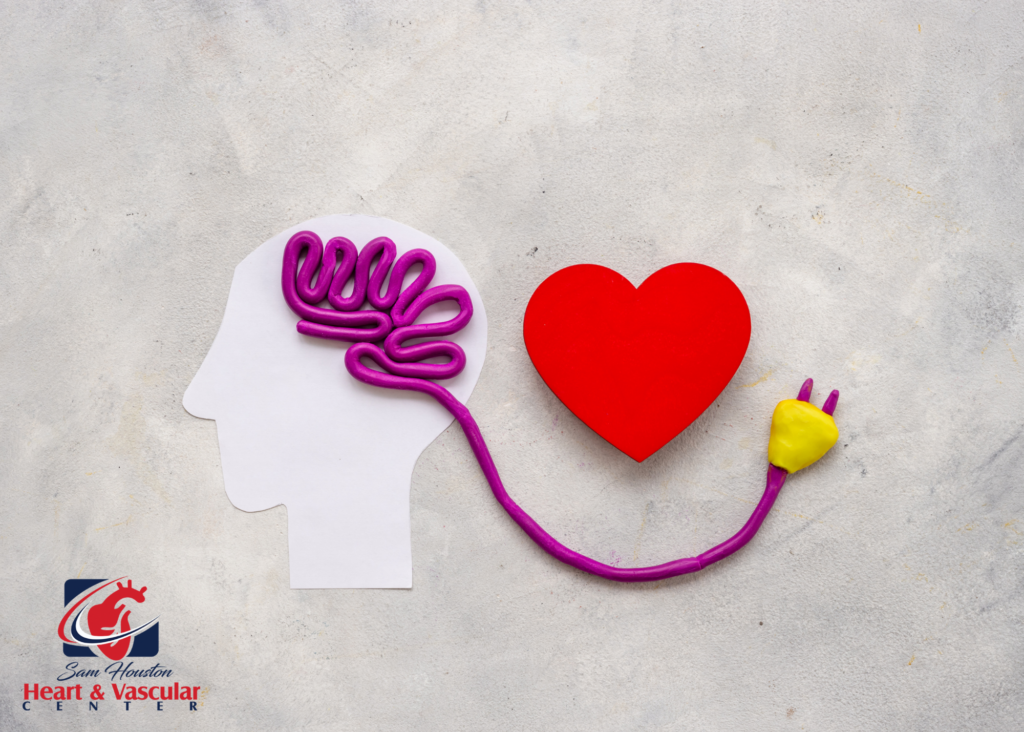
The Connection Between Mental Health and Cardiovascular Wellness
The saying “what’s on your mind can affect your heart” is more than just a metaphor. Emerging research shows a close, bidirectional relationship between mental health and cardiovascular wellness. This means your mental state not only influences your heart health, but living with heart disease can also take a toll on your emotional well-being. Understanding this connection is key to safeguarding both mental and physical health.
Mental Health Conditions and Their Impact on Heart Health
Depression, anxiety, and chronic stress are more than mental struggles; they can have a direct, physical effect on the heart. Research from the American Heart Association and the Centers for Disease Control and Prevention (CDC) highlights the ways mental health disorders influence cardiovascular wellness.
Depression and Heart Disease
Depression does not just impact the mind; it can significantly harm the heart. It contributes to behavioral changes like smoking, overeating, or inactivity, which increase the risk of heart attack or stroke. On a physiological level, depression changes your body’s chemical balance. It can increase levels of cortisol (the “stress hormone”), which in turn raises blood pressure and promotes inflammation in the arteries, contributing to plaque buildup and heart disease.
Anxiety and Heart Health
Anxiety disorders, which affect millions of people worldwide, have been linked to irregular heart rhythms and hypertension. Excessive worry or fear triggers the fight-or-flight response, releasing adrenaline and other stress hormones that elevate your heart rate and blood pressure. Over time, these heightened states can strain the cardiovascular system.
Chronic Stress and Long-Term Risks
While an occasional bout of stress may not harm you, chronic stress can have long-term consequences. Persistent stress keeps your body in a heightened state of alert, increasing the risk of hypertension, stroke, and heart attacks. It also encourages risky behaviors such as overeating, excessive alcohol consumption, or ignoring prescribed medications.
The Biological Mechanisms Behind the Mind-Heart Connection
The connection between mental health and cardiovascular wellness isn’t just behavioral; it’s also deeply rooted in biology. Here’s how mental health affects your heart at a biological level:
- Inflammation: Chronic stress and depression increase inflammation in the body, which contributes to arterial blockages and heart disease.
- Hypertension: Stress and anxiety lead to temporary spikes in blood pressure, which can become chronic over time if unmanaged.
- Heart Rate Variability: Poor mental health is associated with reduced variability in heart rate, a marker linked to higher cardiovascular risk.
These mechanisms highlight why your mental health cannot be separated from your cardiac care.
Strategies to Improve Mental and Cardiovascular Health
Taking care of both your mind and your heart is essential—but the good news is, strategies for improving mental health often double as heart-healthy habits.
1. Exercise Regularly
Physical activity is known to boost mood and reduce stress while improving cardiovascular health. Aim for at least 150 minutes of moderate exercise, such as walking, swimming, or yoga, per week. Exercise also helps maintain healthy blood pressure and cholesterol levels.
2. Practice Mindfulness and Meditation
Mindfulness techniques like meditation, deep breathing, or yoga can calm the mind and lower heart rate and blood pressure. A study shared by the American Heart Association found that mindfulness programs significantly reduced blood pressure in participants.
3. Maintain a Heart-Healthy Diet
A balanced diet rich in fruits, vegetables, whole grains, and lean protein helps reduce inflammation in your body, improving both mental and physical health. Limiting processed foods, sugar, and unhealthy fats is crucial as these contribute to weight gain and stress on the heart.
4. Build a Support System
Having strong social connections is key for mental resilience and heart health. Combat stress and loneliness by staying connected with family, friends, or joining support groups. Regular social interaction can reduce stress, improve mood, and even lower blood pressure.
5. Get Enough Sleep
Poor sleep quality exacerbates both mental and heart health issues. Aim for at least 7 to 9 hours of restful sleep nightly. A consistent bedtime routine and reduced screen time before bed can help improve sleep quality.
6. Seek Professional Support
If you’re feeling overwhelmed, depressed, or anxious, seeking professional help is vital. Counseling, cognitive-behavioral therapy, or medications (when prescribed) can effectively treat mental health conditions, indirectly benefiting your heart in the process.
The Importance of a Holistic Approach
Because mental and physical health are so intertwined, a holistic approach to wellness is essential. Your healthcare team should assess both components to provide comprehensive care. The American Heart Association emphasizes that addressing mental health can lead to better treatment adherence, improved lifestyle habits, and better long-term health outcomes for individuals with heart conditions.
Take Control of Your Mental and Heart Health Today
If you or a loved one are dealing with heart disease or a mental health condition, know that help is available. At Sam Houston Heart and Vascular, our compassionate team of cardiologists will work with you to develop a personalized care plan that addresses your emotional and heart health needs.
Schedule an appointment today at www.samhoustonheart.com or call 832-241-2001. A healthier mind and heart are just one step away.
By recognizing and addressing the link between mental health and cardiovascular wellness, you can take proactive steps toward a fuller, healthier life.

